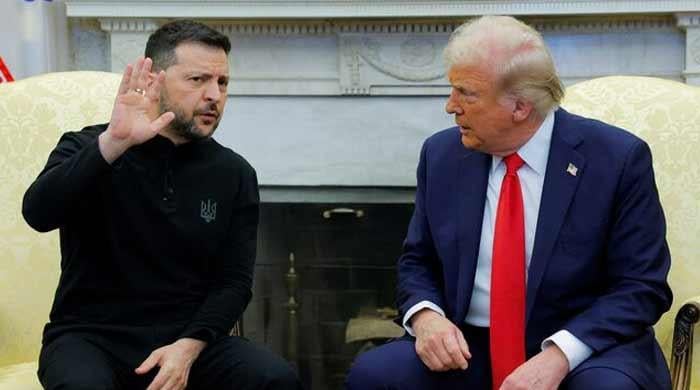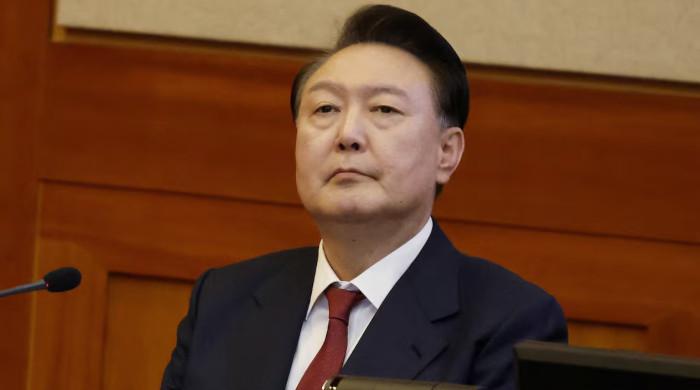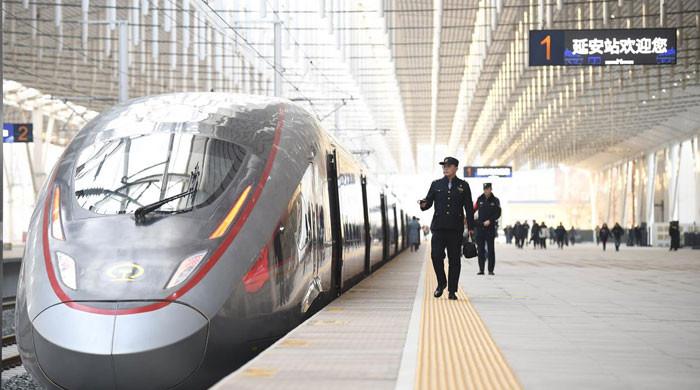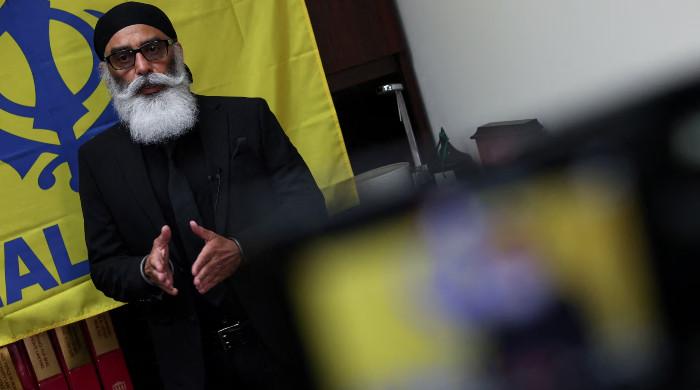Pakistani taxi drivers in UK face dilemma over coronavirus exposure
Some 6,000 Pakistanis work as taxi drivers in London and several have called in sick with serious COVID-19 symptoms
April 12, 2020
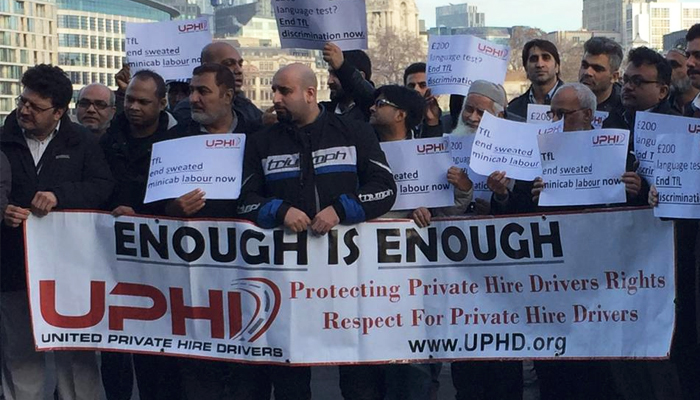
LONDON: Working day and night but not considered essential workers, thousands of British-Pakistani taxi drivers in the UK are facing multiple dilemmas over the coronavirus outbreak and exposure from passengers.
The number of passengers have already been dwindling, severely impacting the drivers' earnings.
A top trade union leader has claimed that drivers who work for ride-hailing apps and taxi companies in the UK are facing intense confusion over how to protect themselves against exposure to COVID-19 — the disease caused by the novel coronavirus — especially owing to their working conditions.
"There are around 110,000 taxi and private hire drivers in the UK, most of them are either black or other ethnic minorities," said Yaseen Aslam, the general-secretary of United Private Hire Drivers (UPHD), an independent body working to protect the drivers' rights.
"Many taxi drivers, including my friends, have suffered from this virus and are fighting it valiantly,” Aslam added.
'Partition screen'
Some 6,000 Pakistanis work as taxi drivers just in London, he said, adding that several have reported themselves sick with serious COVID-19 symptoms. They were exposed to the virus as they picked up customers who sat next to them, making maintaining a two-metre distance impossible.
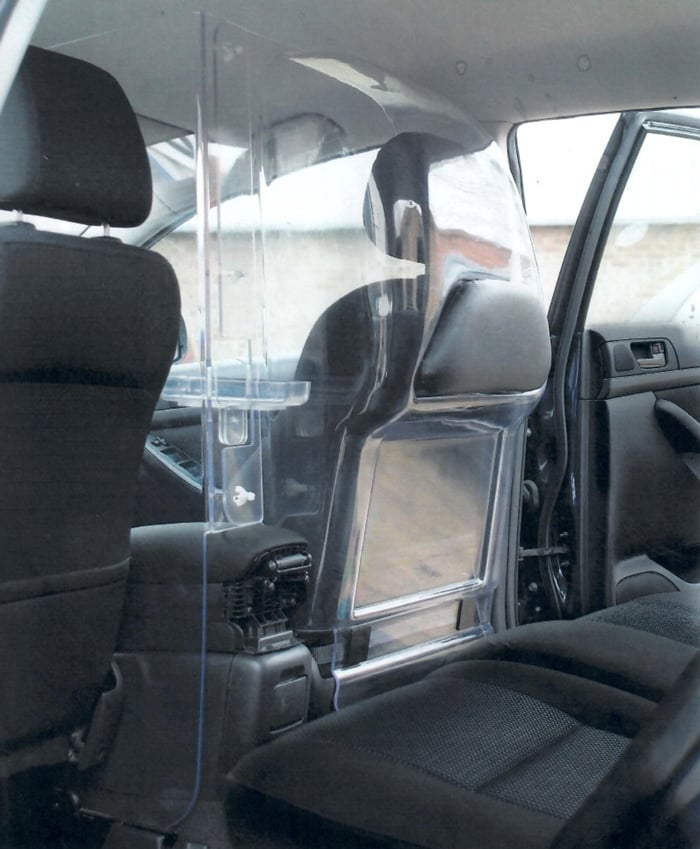
"We approached the TfL [Transport for London] for guidance but they did not provide us with all the [relevant] information," Aslam said. "In The Netherlands, they have added a partition screen between drivers and passengers so why can't they implement it here?
The UPHD official said numerous taxi drivers were not citizens of the UK, making the government unable to offer them any substantial assistance. "We need clear guidelines from the TfL. Are we essential workers or not?"
The TfL, on the other hand, has not categorised taxi drivers as essential workers but let them operate without any protective measures that some other countries have introduced.
Pakistani driver in UK dies of virus
Earlier this week, Ayub Akhtar, a healthy 33-year-old from Azad Kashmir driving for Uber in London, succumbed to the viral disease. He had claimed that he caught the virus after picking up a passenger who constantly coughed in the car.
Akhtar's case highlights the significance of protection for taxi drivers given the circumstances they work in and the close proximity with their customers.
Speaking to Geo.tv, Qasim Rasul, a minicab driver who also caught the virus, said: "I'm self-isolating since March 21. I have problems breathing and it had gone into my lungs but I'm better now.
"I've applied for Universal Credit [financial assistance by the government for living expenditure], hoping for some support from the government. I lost all my strength and taste," Rasul added, stressing that his advice to his peers was to stay home and avoid going into work.
"They don't know how easy it is to catch this virus."
UK in dire condition
Britain's coronavirus cases have skyrocketed to almost 80,000, while the death toll is close to 10,000. Prime Minister Boris Johnson himself contracted the disease and spent at least two days in intensive care but has since been reported to feel better.
The parliamentary undersecretary of state for mental health and patient safety, Nadine Dorries, had also tested positive for the COVID-19, as did Secretary of State for Health and Social Care Matt Hancock.
The government has announced the closure of all non-essential business, seriously impacting the demand for taxi rides. British citizens have been advised not to leave their homes unless they going out to purchase basic necessities, exercising once a day or travelling for essential work, while most companies have asked their employees to work from home to combat the spread of the deadly virus.
"Due to the risk of COVID-19, many of our drivers aren't coming to work," Mahmood Latif of Alphabet Cars said. "The ones who come for work can't find any passengers. There are a lot of difficulties, which is why we have reduced the current staff.
'How can I survive like this?'
"Even the drivers who work 12-14 hours can't make enough money to feed their families," Latif added.
To tackle the coronavirus' economic threat, Her Majesty's Revenue and Customs (HMRC) has announced to cover up to 80% of the salaries of employees earning up to £2,500 but numerous Uber drivers are left out as they are self-employed and not considered employees.
"The market is dead. My taxi costs me £40 every day even if it remains parked," another driver in London, Ikram Nawaz, told Geo.tv. "The government hasn’t done enough for us.
"Uber drivers sometimes earn less than minimum wage. I am getting two to four rides a day. Besides, this job isn't safe anymore. We don’t know if the customers have been affected or are asymptomatic. Sometimes, they lean forward, which makes the health risk quite strong."
Taxi driver Khalil Ahmed said: "If hotels and pubs are closed then there will be no demand for taxis. I was out all night on Saturday but made only £8. How can I survive like this?"
The impact of the virus on the British economy is said to be in hundreds of billions.
The Henry Jackson Society, a foreign policy think-tank, had recently advised the government to seek £351 billion in damages from China for allegedly hiding the reality of the situation. It believes that the UK could have taken timely precautionary measures if it had been informed about the virus when it was discovered.
Some reports have accused China of initially hiding the spread of the COVID-19 in Wuhan from both international and local media. A doctor who had spoken up about the severity of the virus was jailed and ultimately died of the disease.





